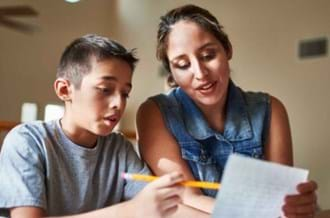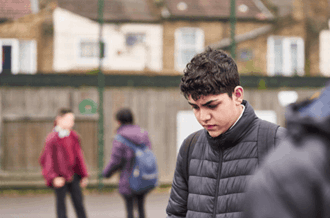10 tips for nurturing the wellbeing of LGBTQ+ young people
10 tips for nurturing the wellbeing of LGBTQ+ young people
At Place2Be, we believe all children and young people should live healthy, safe, and fulfilled lives – regardless of their sexuality, religion, ethnicity or gender identity.
Research by Just Like Us found that LGBT+ young people aged 11 to 18 are twice as likely to experience depression, anxiety and panic attacks than those who are not LGBT+.
The current divisive debate around trans rights is evoking strong emotional responses from some adults. For children and young people exploring their identity, these responses make this sensitive time more complicated than it would be in a calmer environment.
In 2021, we founded our internal Plus+ Group —a network of colleagues from across Place2Be who identify as members of the LGBTQ+ community. The Plus+ Group meets regularly to discuss LGBTQ+-related topics and explore how to better support the LGBTQ+ community.
In this blog, our Plus+ Group shares tips and practical advice on creating safe environments where LGBTQ+ children and young people feel heard and can freely express themselves. Tips include how to best show acceptance while highlighting the importance of doing your own research to support young people's journeys in a calm and balanced way.
Creating a supportive environment
Avoid assumptions
Don't assume a child is straight, gay or has a sexual orientation at all. Equally, avoid assuming that a child's clothing, interests and behaviours should match stereotypes around their gender. Give them time to explore and express themselves at their own pace.
Listen and validate
If a child tells you something about their gender or sexuality, let them be the expert—don't say, 'Are you sure?’. Don’t make it a big deal or a bad thing, but just listen to their thoughts and feelings.
Ease the pressure
Ask if it would be useful for you to talk about it with others alongside them or on their behalf. On the flip side, don't tell anyone without their consent—this includes using different names, pronouns, or labels.
Take accountability for your mistakes
Apologise and address head-on if you realise you previously said something hurtful or acted harmfully.
Challenge misconceptions
Realise that a child or young person identifying as LGBTQ+ does not pose a safeguarding risk to themselves or others.
Awareness and educating yourself
Use media as a tool
TV and other media can serve as a starting point for conversations, helping to make discussions about gender and sexuality identities more normal. It's important to make it clear that most content is opinion, not fact. Communicating this will help children and young people develop their own views.
Show an interest
Show an interest in LGBTQ+ culture, show that it matters and is interesting to you too - but be ready to have got it all wrong.
Do your own research
Find trustworthy resources online to get more information, rather than making them explain everything. Then, you can briefly check out whether that matches what they think or feel.
Supporting the individual
Navigating trans identity
Don’t assume what being trans will mean to the young person in terms of social or medical changes - let them tell you what they would like.
Reflect on intersectionality
Think about the intersections of identities for young people and offer resources around this, for example, queer Muslim groups or trans young people of colour.
Whether you're a parent, carer, teacher, school staff member, friend or family member, there's much more we can do to support LGBTQ+ young people. We've pulled together a selection of useful articles and resources to help you do this.
News & blogs

Why self-awareness is as important in parenting as it is for children
We share examples of how self-awareness can help you grow as a parent and get the best out of you and your child.
Read more
The Young BAFTA Roadshow with Place2Be arrives in South London
Children at Surrey Square Primary in South London were surprised with a Young BAFTA Roadshow visit.
Read more
Walking through pain
Place2Be's Programme Leader for Family Work, Judah, reflects on his experience of the importance of listening.
Read more



